Will the Tables Turn for Equality in Education?
A Candid Chat with Dr. Harsha Alles
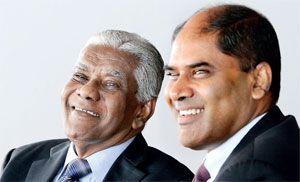 The tour of Gateway College was enhanced by a friendly conversation with the most humble Chairman you’ll ever meet; Dr. Harsha Alles! It was indeed a pleasure to meet him and have a very insightful conversation on his outlook of the education system: Government, Private and International, as well as his solutions and willingness to extend a lending hand to unite the field of education institutions. Dr. Alles began the explanation by saying, “According to Sri Lanka’s constitution every child has the right to education up to 14 years.
The tour of Gateway College was enhanced by a friendly conversation with the most humble Chairman you’ll ever meet; Dr. Harsha Alles! It was indeed a pleasure to meet him and have a very insightful conversation on his outlook of the education system: Government, Private and International, as well as his solutions and willingness to extend a lending hand to unite the field of education institutions. Dr. Alles began the explanation by saying, “According to Sri Lanka’s constitution every child has the right to education up to 14 years.
The current government wants to increase it up to 18 years, where children get compulsory education up to year 13. If you take the schools in Sri Lanka, the Government sector has about 10,000 schools. Then you get the private schools like St. Thomas’s, St. Peters, Musaeus, Ladies and Bishops and so on. Now the emerging sector is the International schools.” Moreover, he stated,“If we take the 10,000 Government schools, you will be surprised that the demand for admissions is only for about 70 schools.
There are many schools where they can’t even find the required number of students. This shows that there is a serious problem in the education system in our country. It is not that we don’t have schools, but many are unable to maintain proper standards. If they need to maintain standards they need to be funded, which is obvious”. According to him, “There is a demand for private schools but they have their restrictions, past pupils and religion and so on. The International schools which have arisen, although fairly new,have been really growing and they now cater to more students than the private schools. As an example, if I may take TISSL, the association of international schools,it consists of 24 leading schools. Among us we have over 40,000 students. In addition there are many other International schools as well.
International schools are the second highest sector as far as the numbers are concerned. The thing is parents have to pay for these schools and even though there are government schools, the reason parents choose international schools is because they see some value in them. Some may want to genuinely have their child educated in the English medium and pursue foreign exams; while others may have tried for these so called ‘popular’ National schools and when they can’t get in, they come to International schools.” “If not for the private sector, where would education have been in this country, is the question. It is the right of every child to receive education until they are 14, but is that the real situation? When children come to international schools,parents have to pay for them from the Playgroup right up to year 13.
They get nothing free. These children don’t get a cent from the government. They aren’t a burden to the country at all. The International Schools too have a lot of challenges because every inch of land that we buy as well as the buildings we put up are at our own cost. The government doesn’t help us in any way. We have to even pay the corporate taxes. There is an imbalance in the system, I feel. Free education is needed. I myself am a product of Free Education. But you have to consider all students as Sri Lankan students. In most International Schools over 95% of students are Sri Lankan.
One group in this country gets everything free, and for them, it doesn’t even stop at year 13; it continuesto University! International school students cannot enter Local University. Local universities take a quota of students from foreign countries and they charge from them. So a student who is studying in Bangladesh or Bhutan can pay and enter Sri Lankan Universities, but the Local students following the UK Curriculum cannot,” Dr. Alles added.
The Chairman spoke very frankly saying, “The irony in this situation is that one part of the student population gets everything free while the others have to pay for everyt h i n g . M o s t times the children in private schools and international schools are looked at in a different way. Society thinks they are the moneyed people and they don’t have any values. That is very unfair. If you take Gateway we want our students to grow up in a very Sri Lankan environment.
Where discipline, religion, culture and values are concerned, we want them to have a true Sri Lankan experience even though they study a foreign curriculum.” He went on to say, “The Children also shouldn’t get the feeling that they are treated differentlytothe pupils attending the National school. Basically from a young age, if the society pointsa finger to a child saying he/she is not patriotic and does not belong to this country, naturally they will be that way. But on the other hand if people understand that these kids and parents have never been a burden to the country and that they too belong to this country, these kids too will return to the country after their higher education and serve this country.” To quote his words,“Free education is absolutely necessary because there are many children who need that.
You must strengthen the State system, but at the same time uplift, encourage and support the private sector to improve and do things better. If the private sector is encouraged, they will do much more for this country. Sri Lanka should be a hub for education in South Asia; this should begin at school level. We already get lots of students from the Maldives. We have the potential to get students from other neighbouring countries such as India, Bhutan, Nepal and Bangladesh. They value Sri Lankan Education.” “The government expects Foreign Universities to come and set up in Sri Lanka, but no university will come and set up on their own.
Rather, what should happen is to open communication with the local organizations who really want to do something in order for them to forge links with foreign institutions” Dr. Harsha Alles pointed out. Concluding he stated, “If the government can create an environment where there is no demarcation between the private and government sector in education, that’s the best solution to uplift our country”. The candid chat I had with Dr. Alles ended on a positive note when he said “We’ve, however, come a long way, we have been able to strengthen our relationship with the Ministry of Education in the recent years. Where Gateway students are concerned I want them to be a part of this society, to contribute towards developing our motherland”.
Devuni Goonewardene

















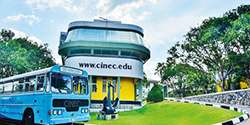
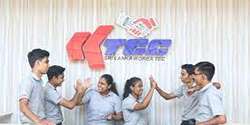

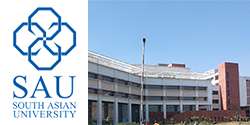



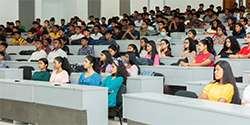
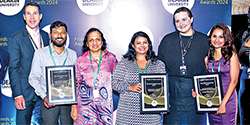

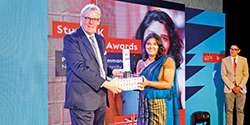
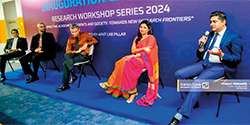



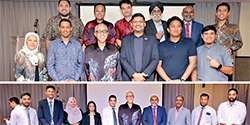

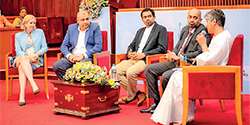
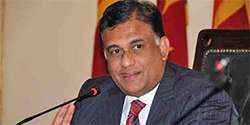
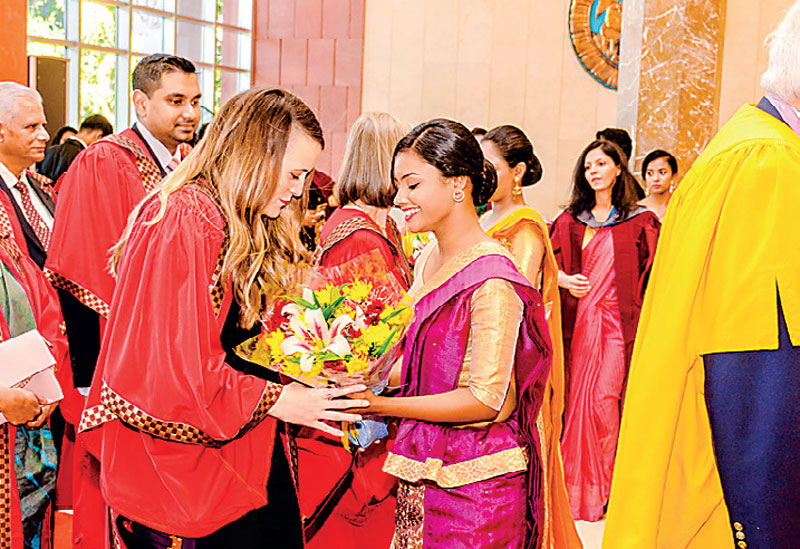

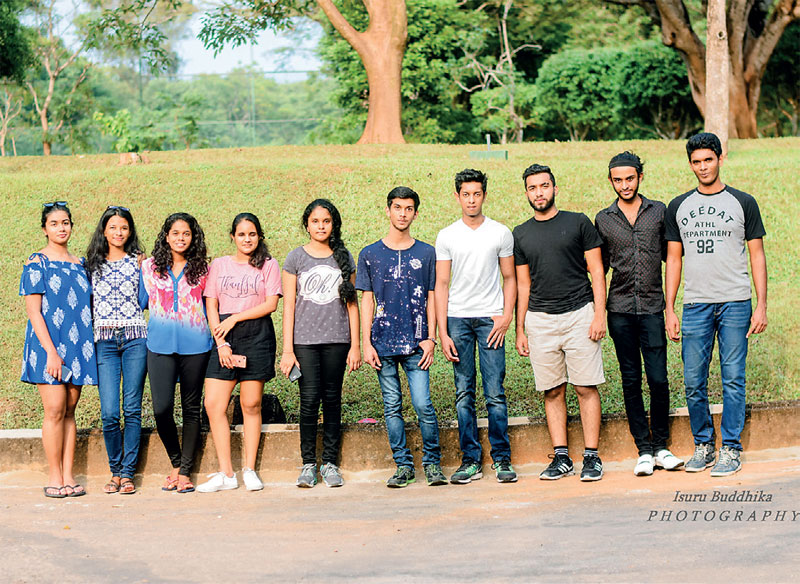
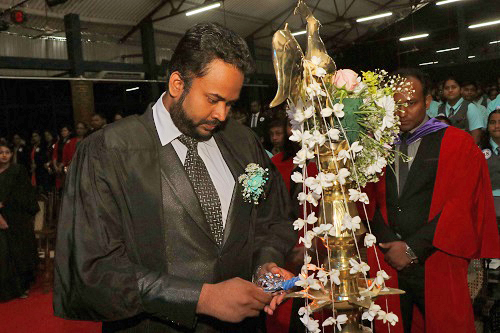
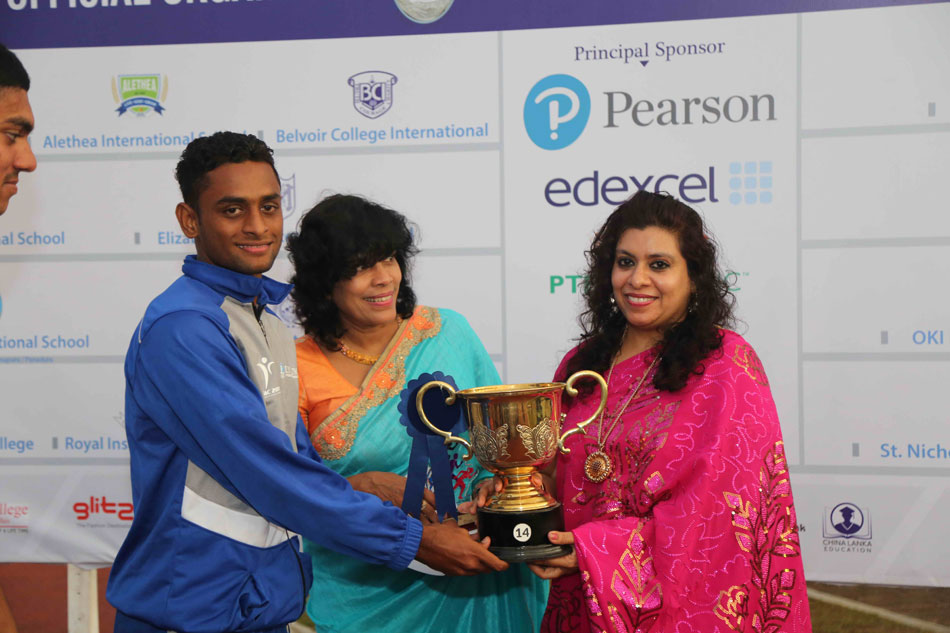
.jpg)
.jpg)
.jpg)
.jpg)
.jpg)
.jpg)
